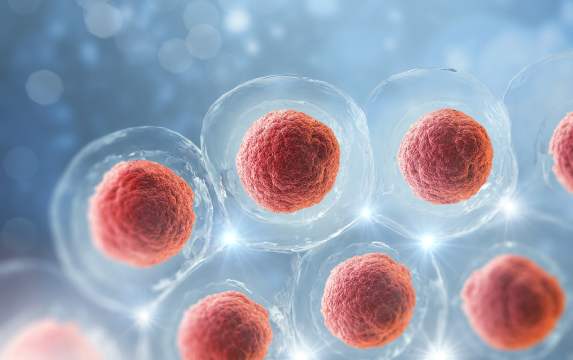Almost all men reach a phase in their life where it’s harder for them to get an erection, but what happens when problems start in their 20s and 30s? Is it necessarily performance anxiety or are there other causes?
Regardless of age, not being able to get an erection when you want one is frustrating. But, if you are in your 20s or 30s and find that you are unable to get or maintain an erection, you may be wondering if things are normal. Erectile dysfunction (ED) is defined as the inability to obtain and maintain an erection suitable for sexual intercourse. In fact, it is estimated that 350 million men around the world have experienced it.
Most young men tend to think that erectile dysfunction is only a problem for the elderly and those who have chronic diseases. However unfortunately, erectile dysfunction can impact men and their relationships at any age, including in their 30s and even before that. Though this is a sensitive issue and many find it difficult to talk about, as with any medical issue it is essential to fully understand what causes erectile dysfunction in young men and review the available treatment options.
What are the Statistics?
By the time the average man is in his 40s, he will have about 40% chance of having some form of ED—whether mild, moderate, or severe. For every decade thereafter, the risk increases by 10%. The same applies to erectile dysfunction in even younger men – they have become much more common than previously thought, and studies have found that more young men report erectile dysfunction today than in previous decades.
A 2013 Italian study that was published in the Journal of Sexual Medicine found that 26% of cases of ED (about 1 in 4) occur in ages 40 and under. But the numbers may be higher as not all men report to their physician of having a problem. The study also found that almost half of the younger men who sought treatment had a severe erectile dysfunction. This is in comparison to only 40% of the men over the age of 40 who were diagnosed with a severe problem. In this context it is noteworthy, that if a younger and otherwise healthy man have started experiencing erectile problems, this might indicate an underlying serious health condition which should be properly diagnosed and treated.
Looking at this graph which shows the prevalence of men in their 20s and 30s seeking treatment for ED between 2010 and 2015, one cannot help noticing that the percentage has tripled in five years.
So, is something specific causing the number of erectile dysfunction cases and their severity to increase among young men in their 30s? The answer to this is complicated.
Why Do Men in their 30s Experience ED?
An erection is a complex physiological response involving the nervous system, hormones, muscles, and the circulatory system. A problem in any of these can lead to erectile dysfunction, while in most cases more than one factor is involved.
Apart from that, life circumstances can also impact erections. Generally speaking, most men in this age group have an exhausting routine which includes attending to their babies and young children at night, many household tasks, financial worries and a career that can exhaust. Taken together, all these can undermine one’s sexuality. As of the age of 35 health problems tend develop due to weight gain, high blood pressure and sometimes pre-diabetes, all of which can affect erectile function.
In addition to physiological (organic) causes, there are also psychological (psychogenic) causes which can play a central role in the onset of erectile dysfunction. Although ED in younger men was once thought to be almost always psychogenic, recent research indicates that 15%–72% of the cases involve solely organic causes.
Some researchers believe the rise of internet porn might be affecting young men’s psychological approach to sex and the preference of porn over sexual relationships – which can lead to ED. However, a 2019 research review found insufficient evidence to support this hypothesis. Other potential psychogenic factors substantiated by science include performance anxiety, general anxiety and depression.
As a general rule, a sudden onset of symptoms, intermittent function and good quality spontaneous or self-stimulated erections are more characteristic of psychogenic causes of ED. Alternatively, a gradual onset of symptoms and a normal libido are more commonly associated with an organic cause of ED.
While a sudden onset of symptoms, intermittent function, a decreased libido, and good quality spontaneous or self-stimulated erections are more characteristic of psychogenic causes. However, because of the physiological and psychological complexity involved in achieving an erection, it is important to think of the causes of ED as a spectrum ranging from solely psychological to solely organic causes, with the majority of cases falling somewhere in between.
Organic Causes of ED at a Younger Age
In the aforementioned 2013 study, it was found that men under the age of 40 with ED have a lower Body Mass Index (BMI), a higher testosterone level and less comorbid medical conditions then men in older age groups. On the other hand, smoking and drug use were found to be key risk factors for the development of ED in men under the age of 40. And as heavy alcohol consumption can likewise cause ED, it remains uncertain whether this applies to ED in younger men.
Other than that, in younger men organic causes of ED can be broadly categorized as endocrinological, neurologic, vascular and additionally as relating to medication side effects:
- Endocrinologic disorders – such as diabetes, low testosterone (hypogonadism), hypothyroidism, hyperthyroidism and Klinefelter’s syndrome which involves inter alia low testosterone levels
- Neurologic conditions – such as epilepsy, multiple sclerosis or spinal cord trauma
- Vascular conditions– such as peyronie’s disease, peripheral artery disease or early phase coronary artery disease
- Medications– including antidepressants, antiepileptics, antipsychotics and opioids
Psychogenic Causes of ED at a Younger Age
Our emotions and mood have a significant impact on erectile function because of the way they relate to the nervous system, to hormonal function and to the circulatory system, and sometimes they are the sole cause of ED. But even if the cause of ED is purely organic, an emotional stress can make the condition worse. Psychogenic causes of ED can affect men at any age, though younger men can be more significantly affected because they are expected to be more “virile”. Common psychogenic causes of ED include depression, performance anxiety, social pressures, psychological trauma, relationship problems and mental health problems (like schizophrenia).
And What About Treatment?
The same ED treatments that are offered to older men may also be effective for younger people, but it’s important to treat the individual cause which may vary from person to person. Usually, a combination of lifestyle changes, psychotherapy/sexual therapy and medications will usually be suggested first.
The Company hereby clarifies that the information contained on the website is for informational purposes only, and is not intended to be a substitute for professional medical and healthcare advice, and does not constitute medical advice or opinion. Always seek the advice of your physician or other qualified health provider with any medical condition or question you may have regarding a medical condition.





